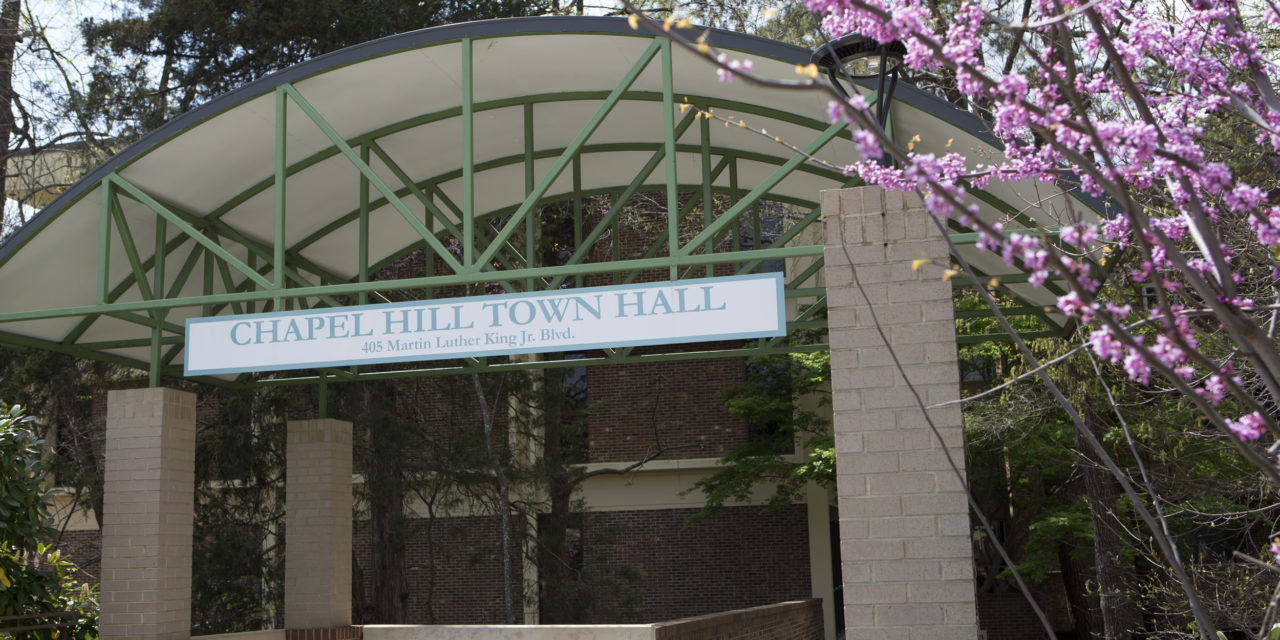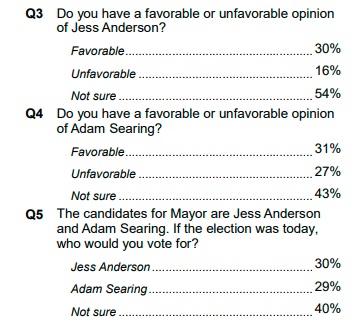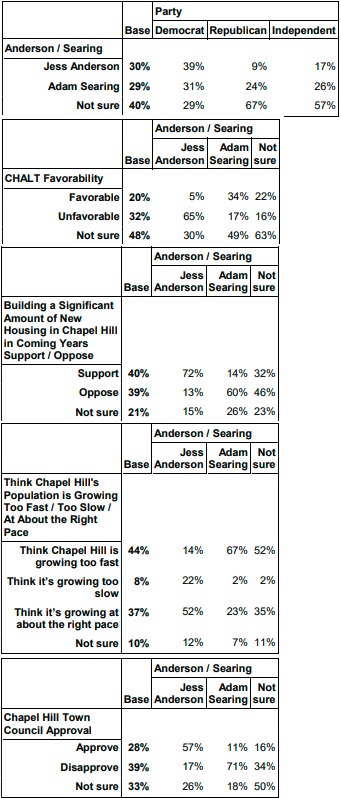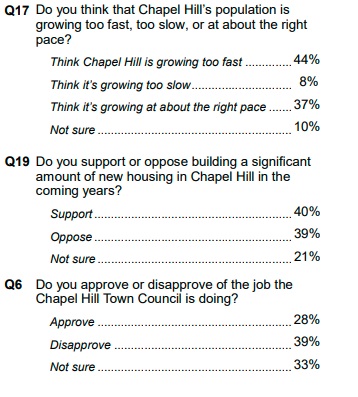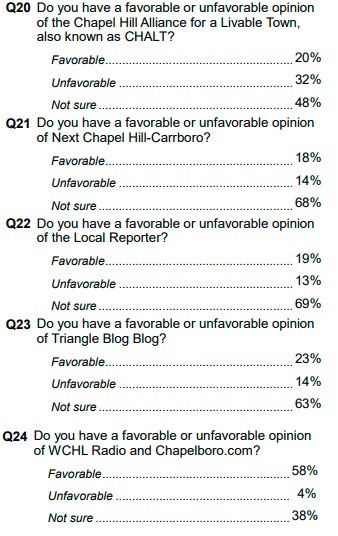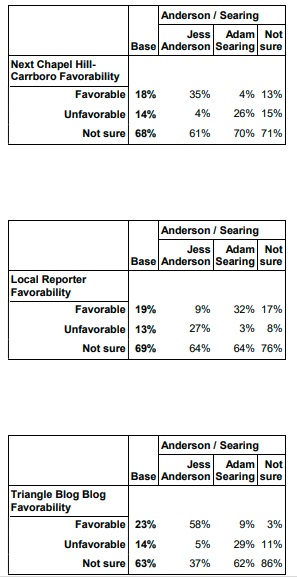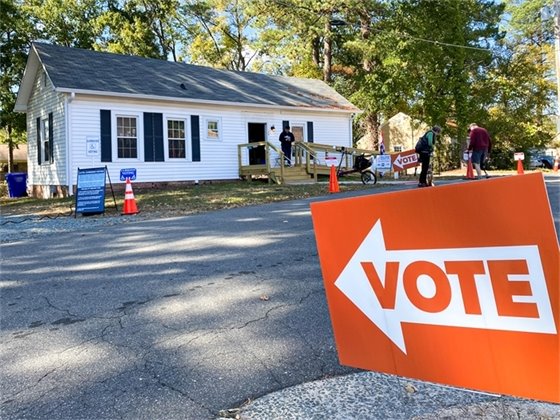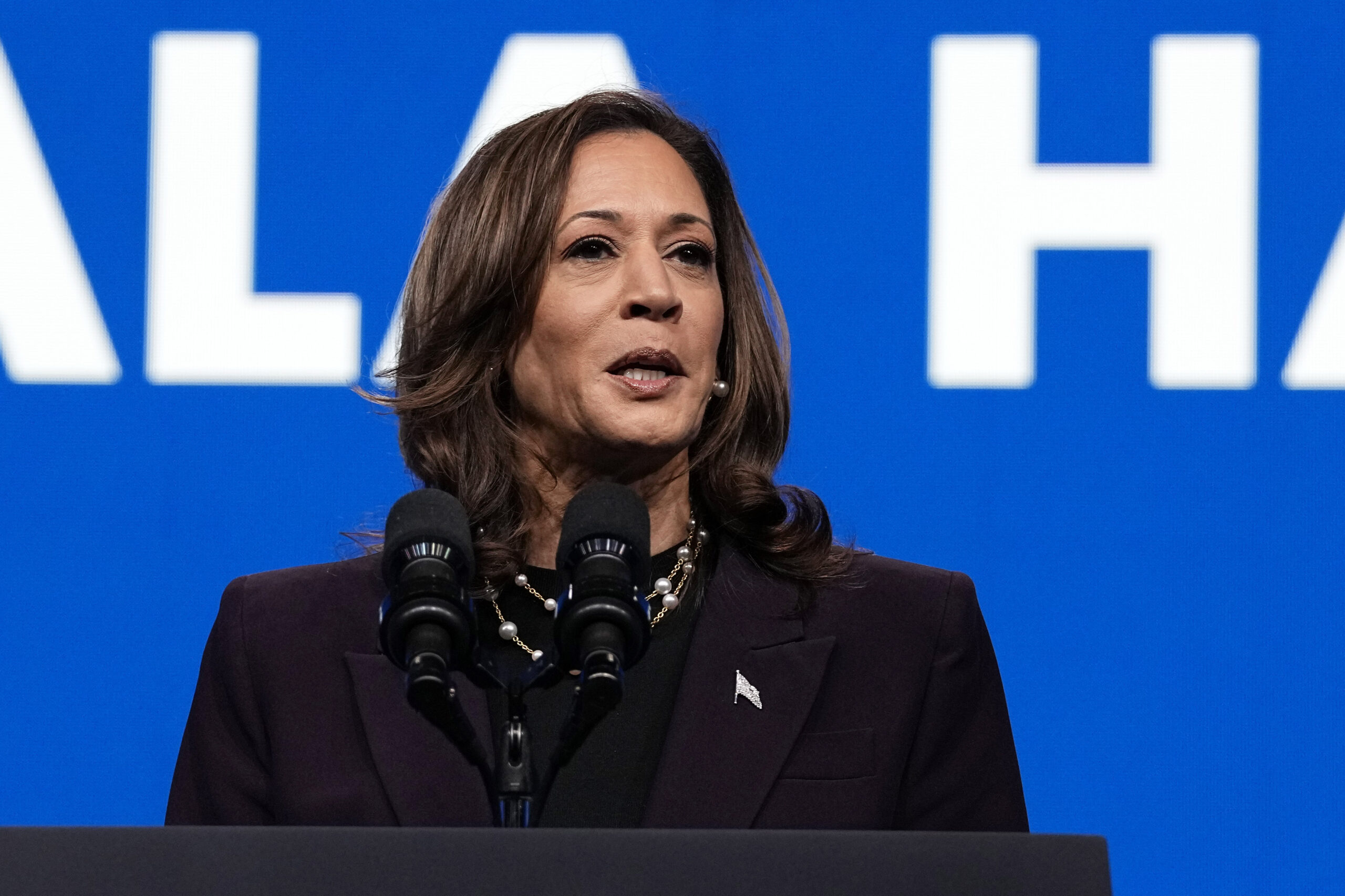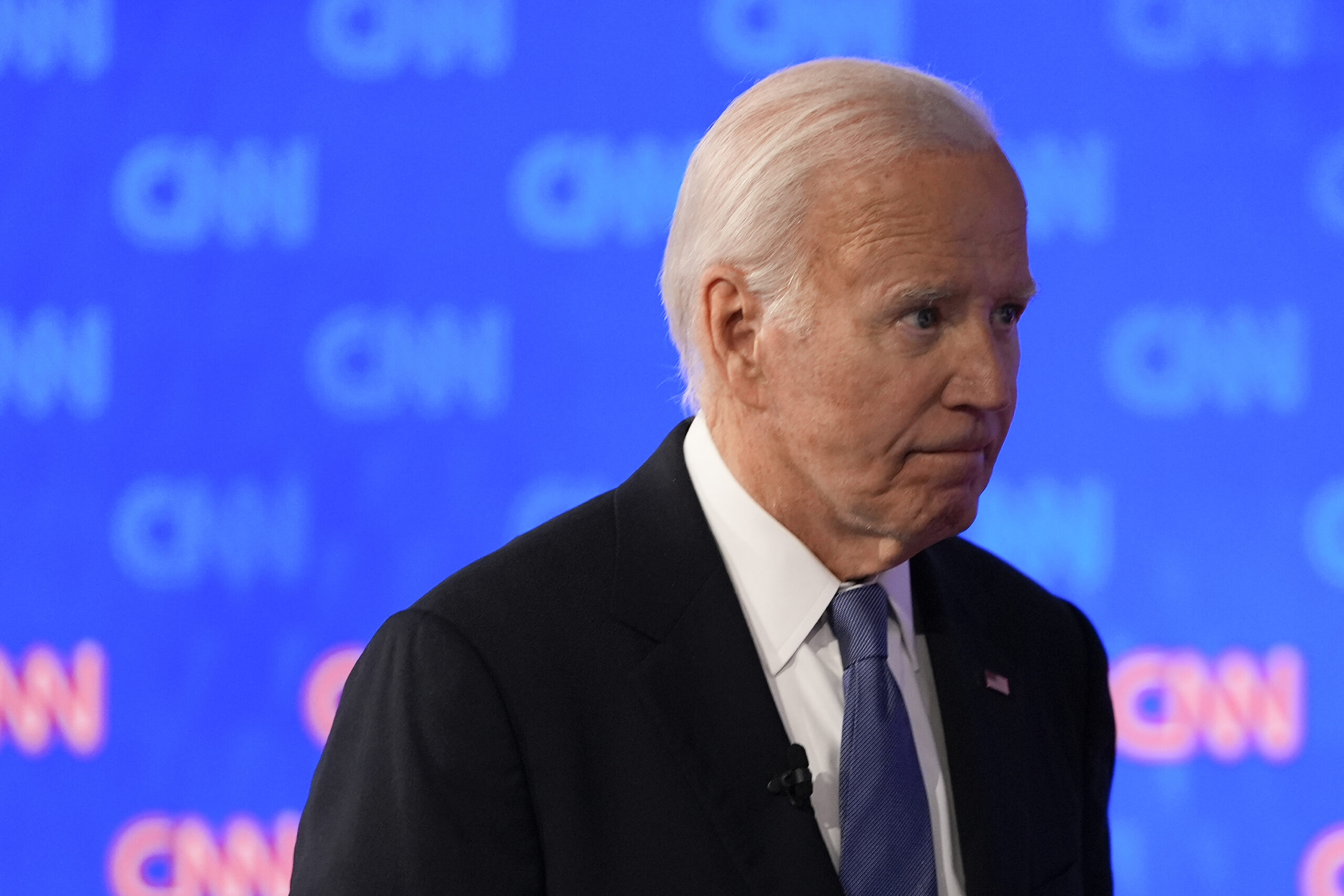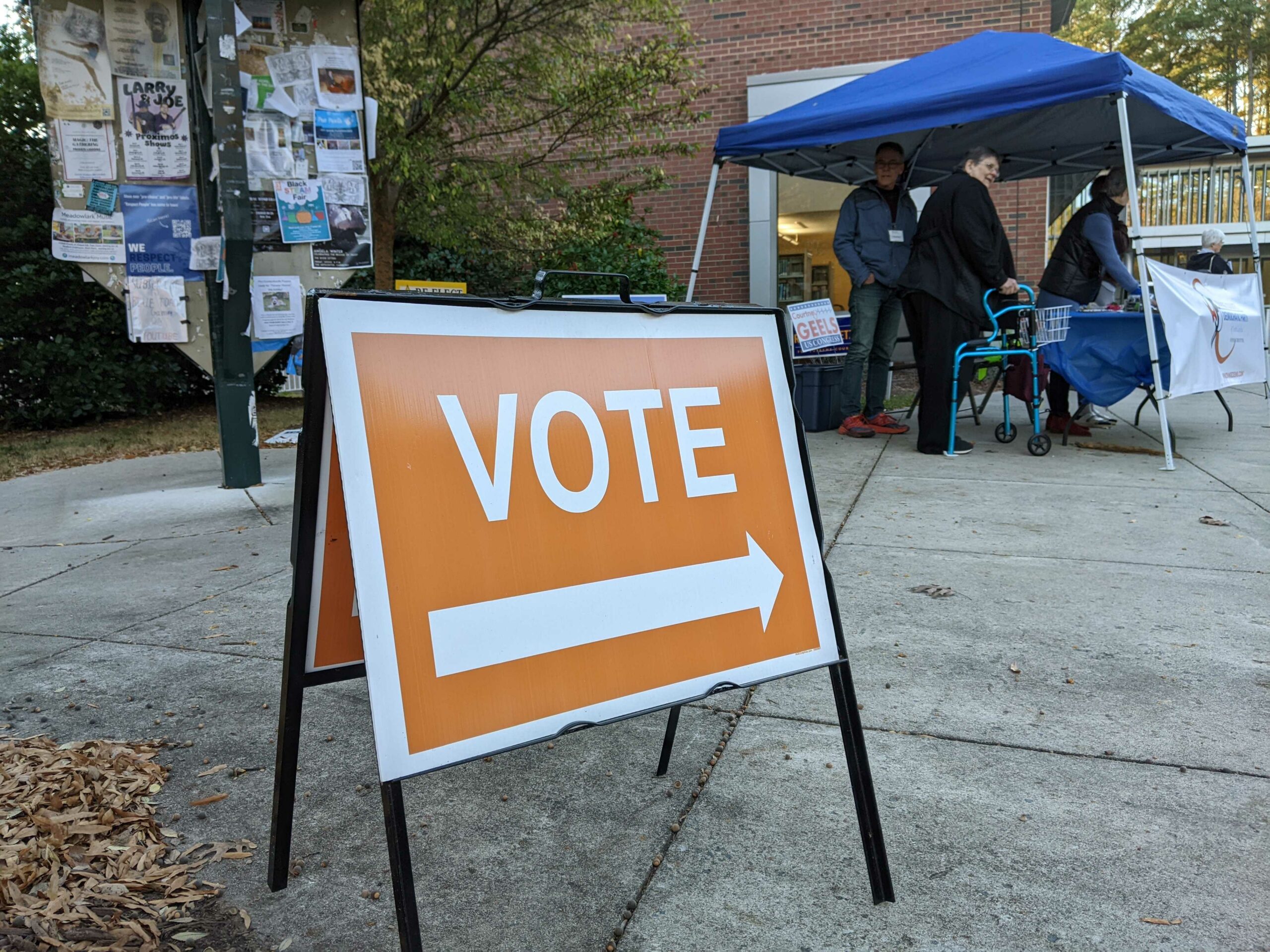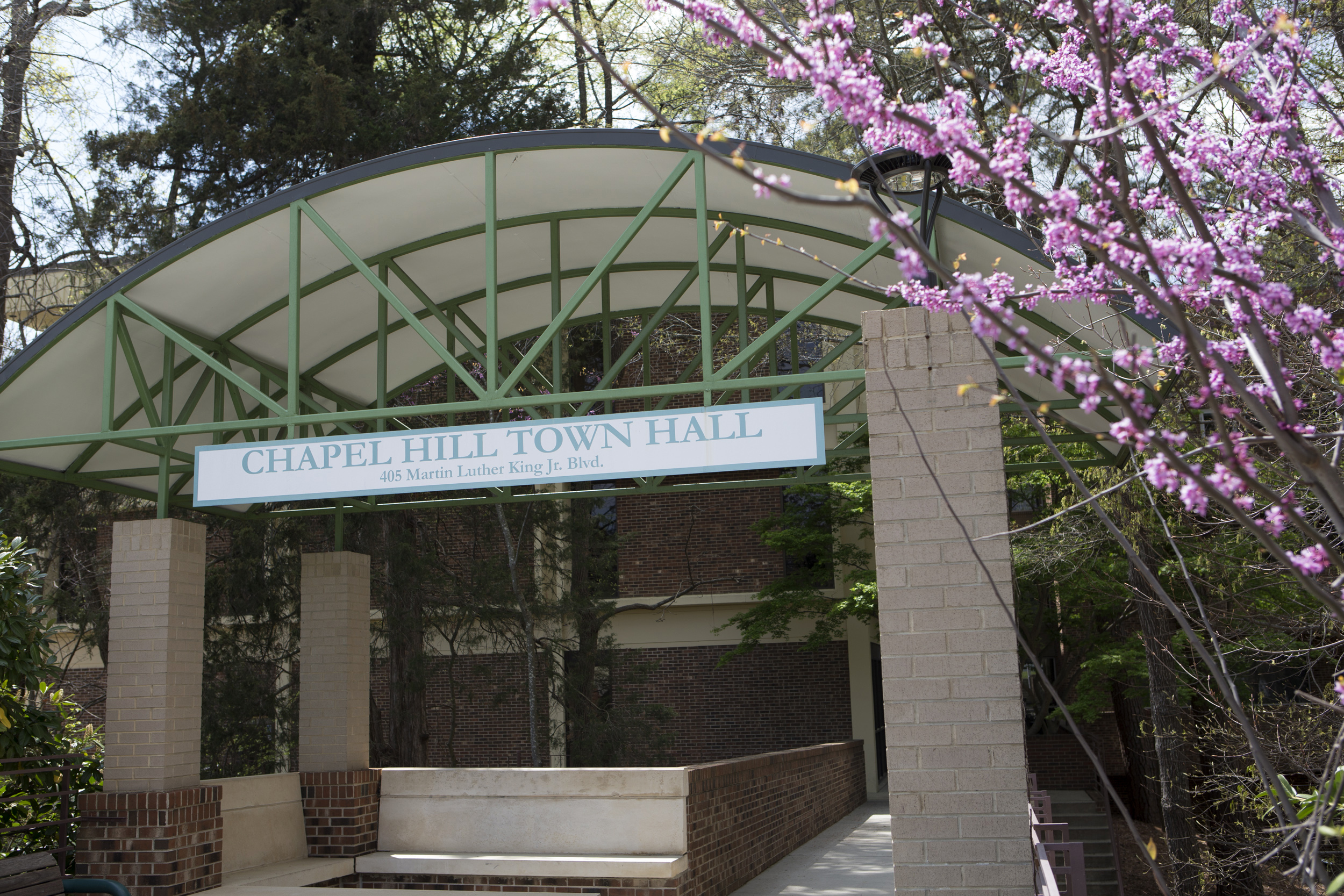Early voting is underway for the 2023 municipal elections, with closely-watched races for Chapel Hill Mayor and Town Council. But where does the race stand, just days away from Election Night?
Public Policy Polling conducted a survey of 401 Chapel Hill voters last week, finding a very tight contest for both Mayor and Town Council. In the race for mayor, Jess Anderson leads Adam Searing 30-29, but 40 percent of voters are still undecided – and there are even more undecided voters in the Town Council race, with eight of ten candidates all polling within a few points of each other.
Click here to see the full results of the poll.
97.9 The Hill’s Aaron Keck discussed the results on Monday with Public Policy Polling director Tom Jensen. Below is a transcript of their conversation, lightly edited for clarity.
Click here to listen to their full conversation.
Aaron Keck: Overall, what stands out for you from these results?
Tom Jensen: As I’ve been observing this election unfold over the last couple months, I’ve really been taken aback by how focused both sides have been on stuff that seems to me like inside baseball. At times it’s felt like a student government election, with both sides just constantly accusing (each other) of cheating or doing unethical things, and (not) much focus on issues or visions for the future of the town. In local elections, there are probably (only) 200 people who really, really care and pay attention to what’s going on, and it feels like most of the rhetoric from both sides has been between those 200 people, and over the heads of average voters – and (these) poll results drove home that view of the race, because there are just a ton of undecided voters. That’s particularly true in the Town Council race, where nobody is getting more than 23 percent of the vote.
Keck: Are you finding that most people have settled on one Town Council candidate that they’re voting for and they’re just undecided on the other three? Or are there a lot of people who just have no idea?
Jensen: I think people just have no idea who they’re voting for, period. Every single Town Council candidate right now has at least 57 percent of voters who aren’t sure whether they’re going to vote for them or not. It’s just a lot of openness to going one way or the other.
PPP survey: “Do you plan to give one of your four votes to…”?
MELISSA McCULLOUGH 23% (14% no, 63% undecided)
AMY RYAN 22% (14% no, 64% undecided)
THEODORE NOLLERT 22% (16% no, 62% undecided)
ELIZABETH SHARP 21% (22% no, 57% undecided)
RENUKA SOLL 19% (24% no, 58% undecided)
DAVID ADAMS 17% (19% no, 64% undecided)
JON MITCHELL 16% (14% no, 70% undecided)
BRECKANY TEAL ECKHARDT 16% (24% no, 59% undecided)
ERIK VALERA 10% (20% no, 70% undecided)
JEFFREY HOAGLAND 3% (30% no, 67% undecided)
Keck: So Melissa McCulloch, Theodore Nollert, Amy Ryan, and Elizabeth Sharp are all getting the most support, (but) the candidates that are slightly further down – Renuka Soll, David Adams, Breckany Eckhardt, Jon Mitchell – they’re probably a little bit behind right now, but they’ve got a lot of room to grow in the next couple of weeks.
Jensen: Yeah, I think the big takeaway from the Town Council results is (that there are) eight candidates within seven points of each other. You have a very good chance of seeing any of those people win.
One interesting dynamic in this race is (with) endorsements. The more progressive groups – Triangle Blog Blog, Independent Weekly, NEXT Chapel Hill – (collectively) endorsed five different candidates. Two people got all three endorsements, Melissa McCullough and Theodore Nollert, and you see them at the top of the race. But then there are three other more progressive candidates (Amy Ryan, Jon Mitchell, and Erik Valera) who each got two of the (three) endorsements. And because of that split, right now you’re seeing a situation where on the whole, those progressive candidates are doing a little bit better than the CHALT-backed candidates, (but) they’re only winning three of the four seats. So I think that if progressive-leaning voters in Chapel Hill want to have a chance of winning all four council seats, they’re going to have to coalesce behind either Jon Mitchell or Erik Valera for that fourth seat. Right now Mitchell’s getting 16 percent (and) Valera is getting 10 percent. So it’ll be interesting to see if anything happens on that front over the next couple weeks.
Keck: Let’s turn to the mayoral race, which is extremely close as well.
Jensen: Yeah, the winner right now for Chapel Hill Mayor is “Undecided.” Forty percent of voters say they don’t know who they’re going to vote for. Jess Anderson’s at 30 percent, Adam Searing’s at 29 percent. So it’s about as close as it could possibly be.
And I was wondering about this 40 percent undecided. I thought, “well, is that just what the situation always is when you have a nonpartisan race?” But I went back and looked at the poll we did the last time there was a competitive mayoral race, in 2015 – and at a similar point in (that) election cycle, only 18 percent of voters were still undecided. So we really do have a lot more voters this time around who don’t know what they’re doing. And again, I think that goes back to the tenor of the campaign, where both camps have been so focused on inside-baseball stuff that things are going over the heads of real voters. And you see that in the favorability ratings for the candidates. 54 percent of voters say they have no opinion about Jess Anderson. 43 percent of voters have no opinion about Adam Searing. So there’s a lot of room for these candidates to more clearly define themselves around what they actually stand for and what they actually want to do as mayor.
Keck: I was also curious about those undecided voters. With the Town Council race, it seems like most of the (leading) candidates tend to be, as you said, the more progressive candidates, Melissa McCullough and Theodore Nollert and Amy Ryan, which you would think would be good for Jess Anderson. But the 40 percent of undecided voters in the mayoral race: they tend to be more anti-Chapel Hill Town Council, they tend to think Chapel Hill is growing too fast, they’re more pro-CHALT than pro-NEXT, they’re more anti-Biden, they’re more GOP-leaning, and those groups all tend to lean towards Searing. That seems to suggest the undecideds will fall more toward Searing than Anderson. What do you think?
Jensen: Well, one really interesting thing that I noticed on this poll: we asked, “In general, do you approve or disapprove of the job that the Chapel Hill Town Council is doing?” And 28 percent said they approved, while 39 percent said they disapproved. So that’s a minus-11 approval rating for the Chapel Hill Town Council. When we did a poll in 2015, right before the election, the Chapel Hill Town Council’s net approval rating was also minus-11. Exact same net approval this time. And (2015) ended up being a major change election, where CHALT candidates won most of the seats. So that particular metric definitely is a more positive one for the CHALT candidates.
But, you know, one thing that’s just fascinating (is) how truly evenly divided the town is right now. We asked a couple questions about growth and development, which seemed to be the biggest issue this year. We asked, “Do you think Chapel Hill’s population is going too fast, going too slow, or going at about the right pace?” 45 percent of people said it’s either going too slow or about the right pace, 44 percent said they think Chapel Hill’s growing too fast. So you see almost an exact divide on that issue. Another thing we asked: “Do you support or oppose building a significant amount of new housing in Chapel Hill in the coming years?” 40 percent said yes, 39 percent said no. So on those key issues for the future of the town, the community is really split right down the middle.
Keck: This survey also looked at the different organizations at the center of Chapel Hill politics: the Chapel Hill Alliance for a Livable Town (CHALT), NEXT-NC, Triangle Blog Blog, The Local Reporter, and WCHL and Chapelboro.com. Where do people fall on all of those?
Jensen: Well, first of all, it warms my heart to know that one thing that does bring us all together in this divided town is that we love WCHL. Only 4 percent of the community doesn’t like WCHL, 58 percent are positive. Those other groups: CHALT has a minus-12 favorability rating, 20-32; Triangle Blog Blog has a plus-9 favorability rating, 23-14; The Local Reporter has a plus-6 favorability rating, 19-13; and NEXT Chapel Hill-Carrboro has a plus-4 favorability rating, 18-14.
But when we look at the undecideds for mayor, I think it’s important to point out some things related to these groups. Among the undecideds, 86 percent have no familiarity with Triangle Blog Blog, and 63 percent have no familiarity with CHALT. So much of this campaign has been people on the CHALT side grumbling about Triangle Blog Blog, (or) people on the progressive side grumbling about CHALT, (but) only the people who are really paying attention to this election even know what these groups are. We have huge numbers of voters on the fence, and none of them know what Triangle Blog Blog or CHALT are.
So again, I just implore all the candidates: in the last couple weeks, focus on yourselves. Focus on why people should vote for you. Don’t spend a lot of energy trying to drag these external groups. There’s been so much of that, that the candidates aren’t even really getting to define themselves in voters’ minds. And this election could definitely go either way. Based on this poll, I think about the only thing we can call is that Jeffrey Hoagland is not going to win. Everything else is still possible. It’s been a long campaign, but the candidates (are) still in an even position, with a chance to win it here in the last couple weeks.
Chapelboro.com does not charge subscription fees, and you can directly support our efforts in local journalism here. Want more of what you see on Chapelboro? Let us bring free local news and community information to you by signing up for our biweekly newsletter.

